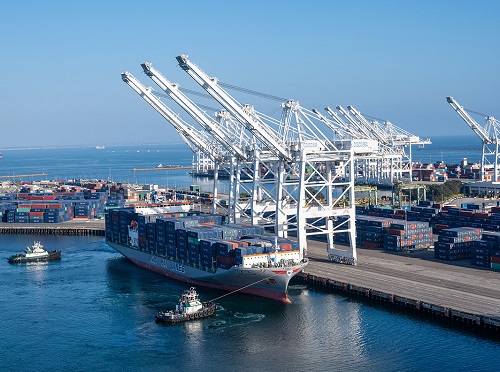The U.S. Maritime Administration, known as MARAD, has issued over $653 million to 41 port improvement projects nationwide via its Port Infrastructure Development Program or PIDP.
[Above photo by the Port of Long Beach]
MARAD noted that the PIDP seeks to improve port and related freight infrastructure to meet the nation’s cargo transportation needs. The program provides planning support, capital funding, and project management assistance to improve capacity and efficiency of ports in both urban and rural areas.
This round of PIDP awards include more than $172.8 million for 26 small ports to continue to improve and expand their capacity to move freight reliably and efficiently, thereby boosting local and regional economies while protecting surrounding communities from air pollution.
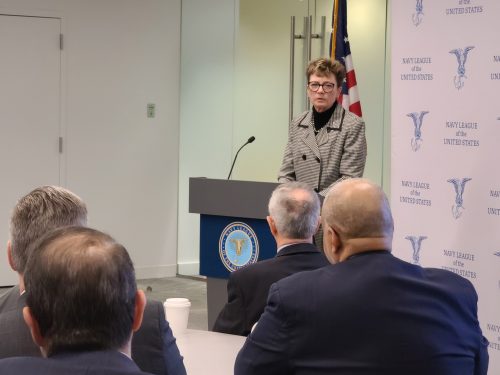
“Modernizing the nation’s port infrastructure is vital to the reinforcement of America’s multimodal system for transporting goods,” noted Maritime Administrator Ann Phillips in a statement.
“The advantages of cargo movement on water extend well beyond the maritime domain,” she added. “Funding port infrastructure development … ensures that goods move reliably and in greater quantities, strengthening supply chain resiliency across all modes of transportation, and addressing the negative impacts of port operations on public health and the environment that have harmed communities living near ports.”
MARAD noted that the port projects were selected for PIDP funding based on their ability to improve the safety, efficiency, or reliability of the movement of goods, as well as on how well they would improve port resilience.
Other factors considered during the project evaluation process included the amount of non-federal funding an applicant committed to the project and how well the project enhanced economic vitality, supported workforce development, addressed climate change and sustainability, and advanced equity and President Biden’s Justice40 Initiative.
In a related move, MARAD issued $12 million in grants to eight marine highway projects across the nation in September via its United States Marine Highway Program or USMHP.
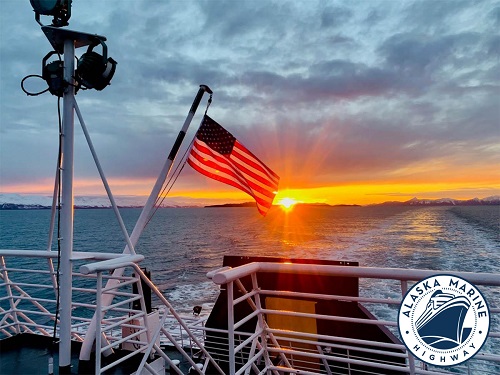
The agency said that funding should improve the movement of goods along U.S. navigable waterways and expand existing waterborne freight services in Alaska, Illinois, Indiana, Louisiana, Texas, Washington, and Wisconsin – strengthening supply chains and ultimately cutting costs for consumers.
Of that nearly $12 million in grants, MARAD said $5.8 million will go towards supporting projects within “historically disadvantaged communities.”
The agency noted that USMHP grants can be used to purchase low-emission U.S.-manufactured equipment, such as container reach stackers and cranes, with the condition that all iron, steel, manufactured products, and construction materials are produced in the United States. In addition, funds can be used to purchase intermodal equipment that can alleviate supply chain bottlenecks, MARAD said.
Concurrent with those grant awards, the agency established two new Marine Highway Routes – M-11 and M-79 – to help speed up the movement of goods, strengthen supply chains, and support local economies in Alaska, Pennsylvania, and West Virginia.
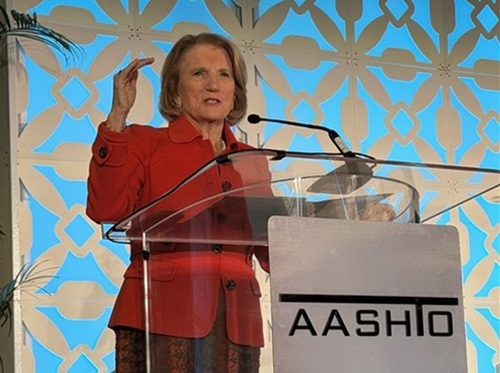 Top Stories
Top Stories
Congressional Leaders Detail Key Transportation Priorities
February 26, 2026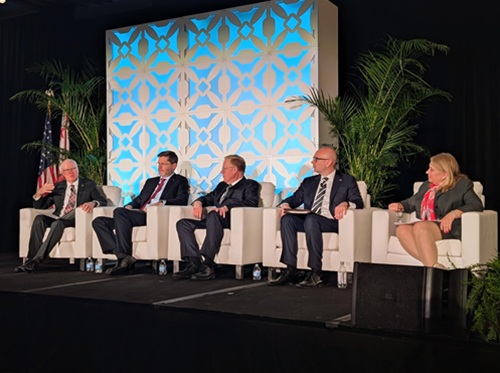 Top Stories
Top Stories
